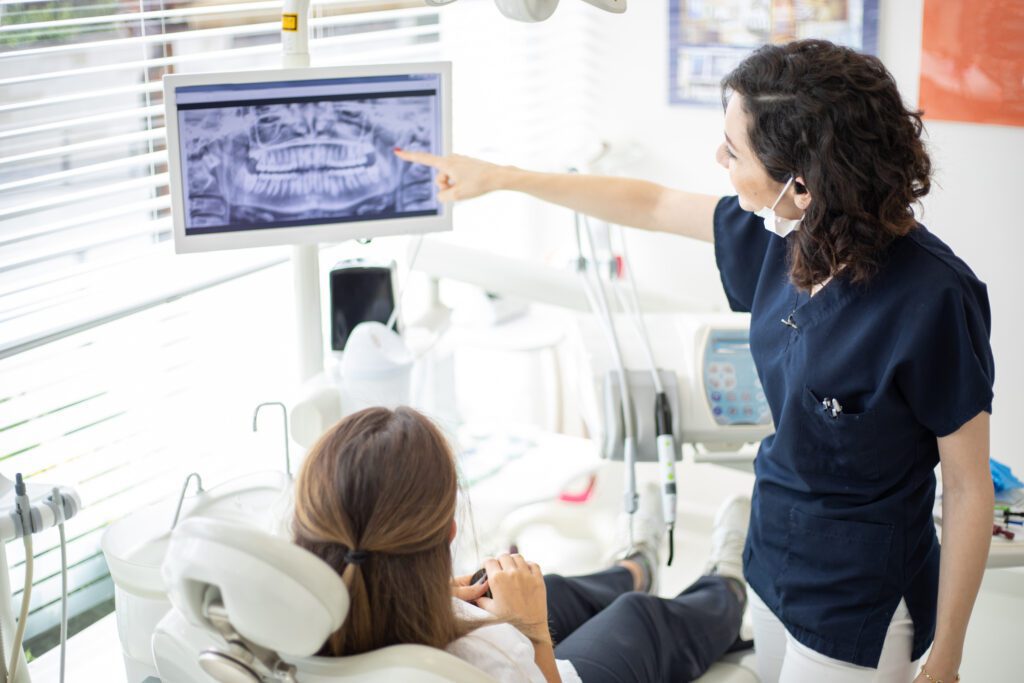The temporomandibular joints (TMJ) connect the lower jawbone to the skull. Any stress or injury to these joints can create temporomandibular joint disorders (TMD). In addition, patients with crooked teeth or a misaligned bite are more prone to developing TMD.
These problems place stress on the bite and the joints that control the jaw. At Clarkston Dental Care, we provide restorative dental care for patients who require TMJ treatment in Clarkston, MI. Treating TMJ disorders preserves tooth, gum, and jaw health.

Signs of TMJ Disorders
Common symptoms of TMD include:
- Jaw and facial pain
- Toothaches
- Earaches
- Joints popping or clicking
- Teeth clenching and grinding (bruxism)
- Pain when biting and chewing
- Chronic migraines or headaches
Contact our office if you notice any of these symptoms. We will examine and evaluate your teeth and jaw to find which areas are causing your pain and discomfort.
TMJ Treatment with Nightguards in Clarkston, MI
We can create custom-made nightguards for patients with bruxism as a result of TMD. Many patients clench and grind their teeth at night. The only signs of bruxism when they wake up can be morning headaches, jaw pain, and tooth wear. At routine visits, we thoroughly examine the smile and can spot signs of bruxism before patients wear down their natural teeth.
TMD nightguards are made of clear acrylic that can cover the upper or lower row of teeth. Patients wear nightguards during sleep to stop tooth wear and jaw pain. Wearing this nightguard also corrects tooth placement for a more relaxed bite.
Additionally, we may recommend physical therapy and a soft diet for TMD patients. A soft diet relieves pressure on the jaw joints. During physical therapy, patients can learn exercises that work tense muscles in the jaw, shoulders, arms, and back. These muscles can also contribute to worsening TMD symptoms.
Relieve TMD Pain
Do you think you may have a TMJ disorder? Schedule a dental appointment with our team on our website to treat your TMJ symptoms. You can also call us today at 248-985-2906. If you have questions for our office, we will be glad to help you get the answers and treatment you need.
